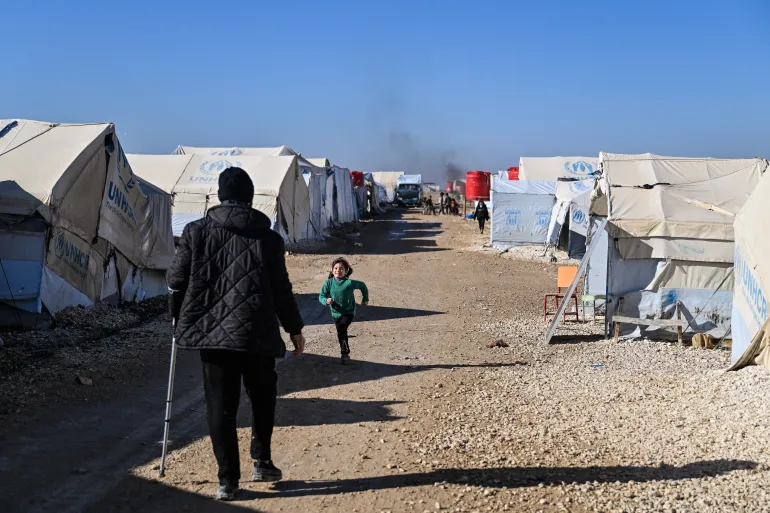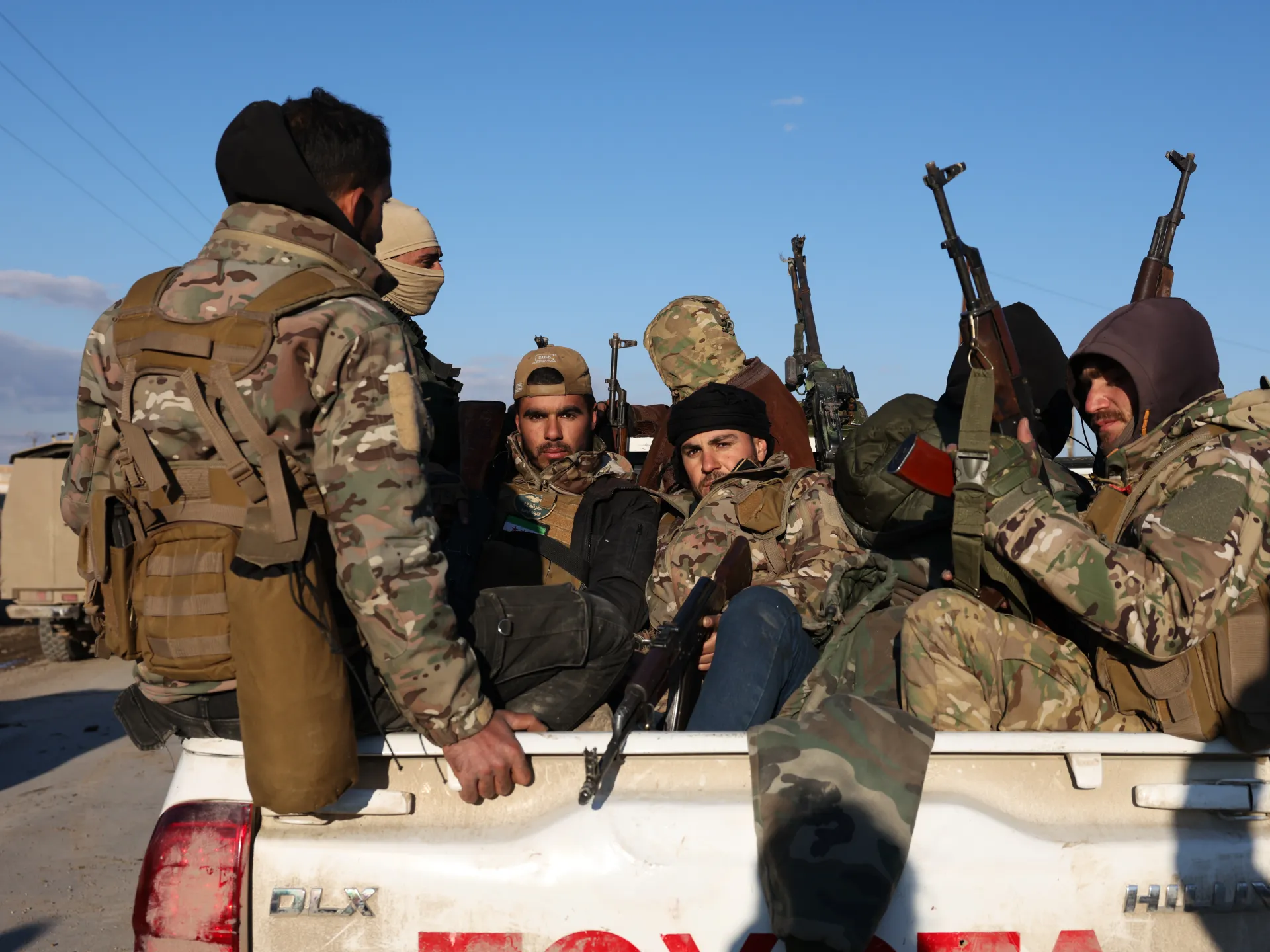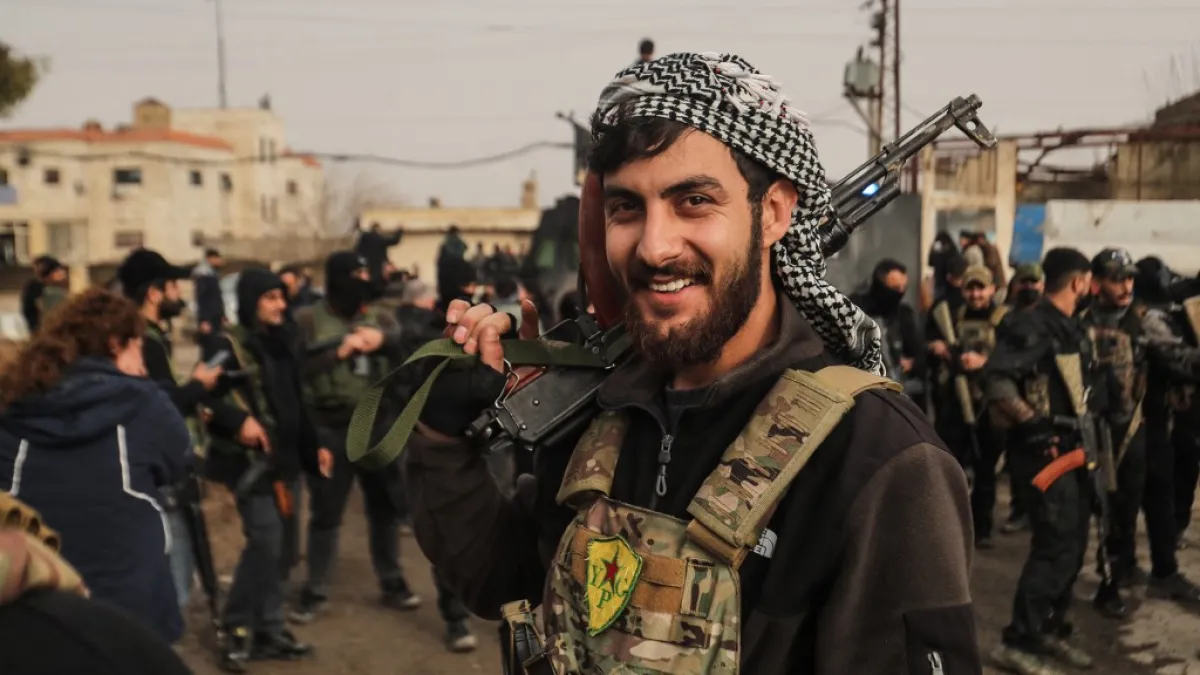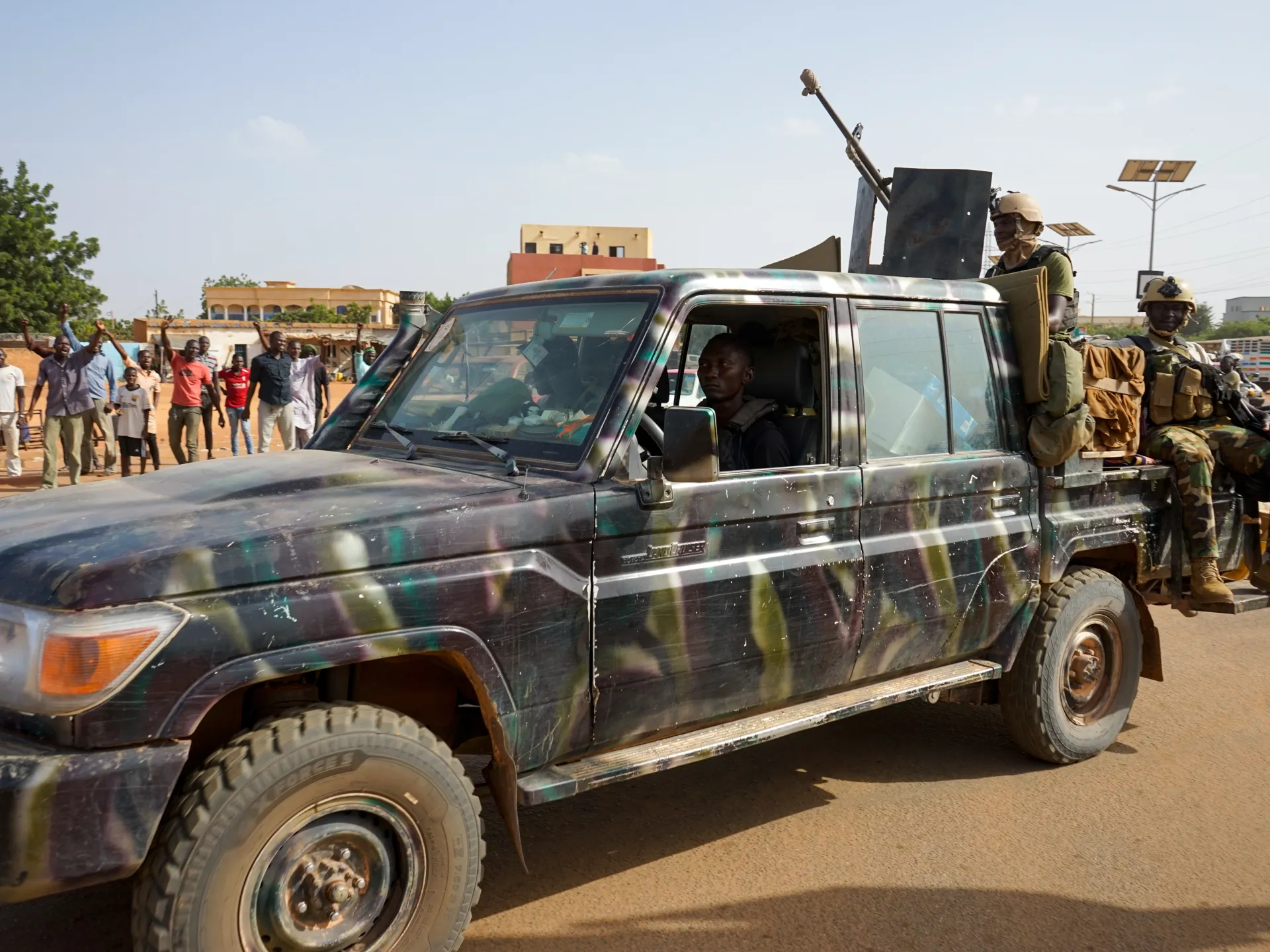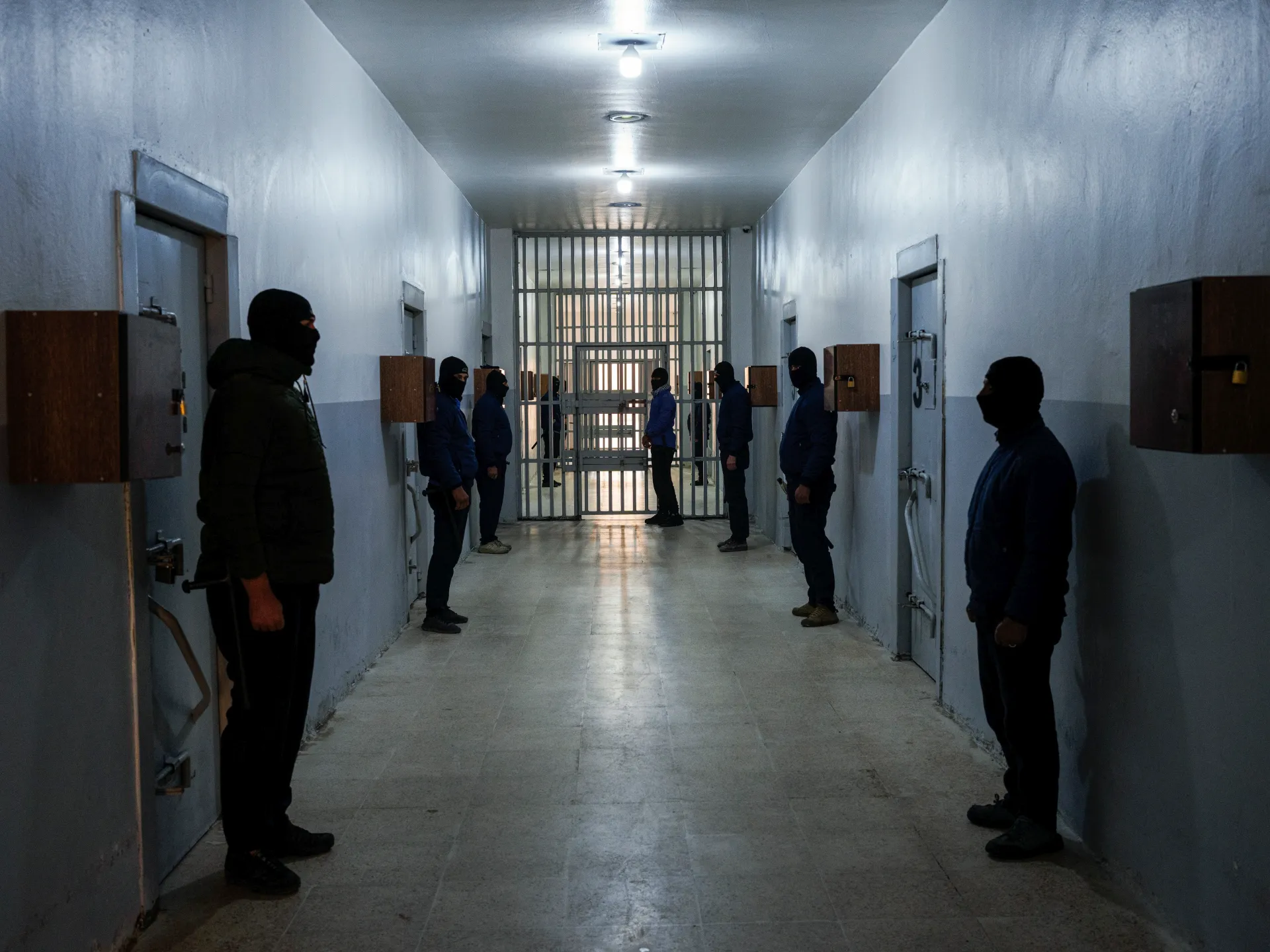US says over 5,700 suspected ISIL detainees relocated from Syria to Iraq | News
Iraqi authorities confirm the transfer, saying detainees of 61 nationalities have arrived in the country.
Published On 15 Feb 2026
The United States has announced the completion of the transfer of more than 5,700 suspected ISIL (ISIS) detainees from Syria to Iraq.
“The 23-day transfer mission began on Jan 21 and resulted in US forces successfully transporting more than 5,700 adult male ISIS fighters from detention facilities in Syria to Iraqi custody,” the US Central Command (CENTCOM) said in a statement on X on Saturday.
Recommended Stories
list of 4 itemsend of list
The operation was completed after a night flight from northeastern Syria to Iraq took place on February 12, “to help ensure ISIS detainees remain secure in detention facilities”, CENTCOM added.
The US had previously announced it would transfer about 7,000 detainees.
The detainees from some 60 countries had for years been held in Syrian prisons run by Kurdish-led Syrian Democratic Forces (SDF) before the recapture of surrounding territory by the Syrian government prompted the US to step in.
ISIL swept across Syria and Iraq in 2014, committing massacres and forcing women and girls into sexual slavery.
Backed by US-led forces, Iraq proclaimed a victory over ISIL in the country in 2017, and the SDF ultimately defeated the armed group in Syria two years later.
The SDF went on to jail thousands of suspected fighters and detain tens of thousands of their relatives in camps.
Iraq’s National Centre for International Judicial Cooperation (NCIJC) said 5,704 ISIL detainees of 61 nationalities had arrived in Iraq. They include 3,543 Syrians, 467 Iraqis, and another 710 detainees from other Arab countries.
There are also more than 980 foreigners, including those from Europe, Asia, Australia and the US.
“We appreciate Iraq’s leadership and recognition that transferring the detainees is essential to regional security,” said CENTCOM head, Admiral Brad Cooper. “Job well done to the entire Joint Force team who executed this exceptionally challenging mission on the ground and in the air.”

The NCIJC said Iraq’s judiciary will interrogate the detainees before taking legal action against them.
Last month, Syrian troops drove the SDF from swaths of northern Syria, prompting questions over the fate of the ISIL prisoners. Lingering doubts about security pushed the US to announce it would transfer them to Iraq to prevent “a breakout” that could threaten the region.
Iraq has issued calls for countries to repatriate their nationals among the ISIL detainees, though this appears unlikely.
For years, the SDF also called on foreign governments to take back their citizens, but this was done on a small scale and remained limited to women and children held in detention camps.
Most foreign families have left northeast Syria’s al-Hol camp, which is the largest camp holding relatives of ISIL fighters, since the departure of the SDF, which previously guarded it, humanitarian sources told the AFP news agency on Thursday.
Al Jazeera’s Assad Beig said the al-Hol camp, established in 2019 after ISIL was defeated in Syria, developed a “notorious reputation” over the years.
“Aid workers documented the killings and underground ISIL enforcement groups, while security officials warned it was a breeding ground for future armed groups,” he said.
